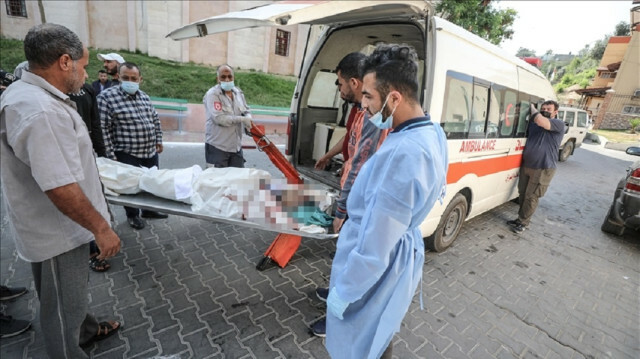
Israeli missiles kill two highly respected doctors in Gaza
Israeli violence against health care workers is multiplying difficulties of already fragile health systems in Palestine and the Gaza Strip amid the coronavirus pandemic.
Hitting the few available hospitals in a densely populated urban setting is rubbing salt into the wounds of millions living under an apartheid regime.
The UN Security Council unanimously adopted Resolution 2286 on May 3, 2016, that obliged member states to ''strongly condemned attacks and threats against the wounded and sick, medical personnel and humanitarian personnel exclusively engaged in medical duties, their means of transport and equipment, as well as hospitals and other medical facilities. It deplored the long-term consequences of such attacks for the civilian populations and health-care systems of the countries concerned.''
The Council demands that ''all parties to armed conflict comply fully with their obligations under international law, in particular their obligations under the Geneva Conventions of 1949 and their Additional Protocols of 1977 and 2005.''
Despite explanations from Israel that its airstrikes are surgical in Gaza, where a ruthless 14-year blockade takes its toll, the strikes end up hitting surgical wards in urban settings. Senseless Israeli explanations ring hollow to targeted health workers or mourning parents who bury their beloved children.
Israel has a notorious track record of showing no respect to the sick and no regard to those who provide care. All too often, attacks on hospitals are not just isolated or incidental fallout from a war, but rather the intended objective of the Israeli Defense Forces (IDF).
Ayman Abu al-Ouf, head of internal medicine and member of the coronavirus task force at Gaza's largest hospital, Al-Shifa, was killed Sunday in a missile attack in the al-Wehda district. His wife and five children were also killed.
He was one of the most unique and smart doctors Zaher Sahloul has ever met, the president of US-based global health NGO, MedGlobal, told Anadolu Agency.
“I met Dr. Ayman al-Ouf during my medical mission in Gaza,” said Sahloul. “He is a very smart and unique physician who was trained in Germany and Jordan, came back to Gaza to serve his community. And unfortunately, he was killed with eight members of his family in the bombing happening in Gaza by the Israeli (IDF) army.”
In addition to al-Ouf, he said, Dr. Mooein al-Aloul was killed along with 33 members of his extended family.
"Attacks on health care [workers] during conflict is against international humanitarian law, it will add to the shortage of medical care providers in Gaza," he said.
Sahloul said al-Aloul was one of the few, if not the only neurologist in Gaza and now that he is gone, his patients will have a hard time coping with their health issues, especially at a time when they cannot easily travel outside Gaza.
Al-Aloul, one of the few psychiatric neurologists in Gaza, was also killed at his home in the same district.
“Everything that can be done to stop the [Israeli] bombing should be done,” Sahloul said, harshly criticizing Israel's bombing of schools, clinics and roads in Gaza. ''Physician and nurses all over the world should be advocates for their colleagues in Gaza,''
"We have to speak out, we have to demand that these bombings should be stopped," he said.
Instead of working at lucrative private clinics, the two doctors chose to work in a public hospital, dedicating their lives and professions to the besieged people of Gaza.
According to a bulletin by the UN’s Office for the Coordination of Humanitarian Affairs, four hospitals run by Gaza’s Ministry of Health sustained damage, along with two hospitals run by NGOs, two clinics, a health center and a facility belonging to the Palestine Red Crescent Society.
At least 227 Palestinians have been killed, including 64 children and 38 women, and 1,620 others injured in Israeli attacks on the Gaza Strip since May 10, according to the Palestinian Health Ministry.
Recent tensions that started in East Jerusalem during the Muslim holy month of Ramadan spread to Gaza as a result of Israeli assaults on worshippers in the flashpoint Al-Aqsa Mosque compound and Sheikh Jarrah neighborhood.
Israel occupied East Jerusalem, where Al-Aqsa is located, during the 1967 Arab-Israeli war. It annexed the entire city in 1980 in a move never recognized by the international community.

